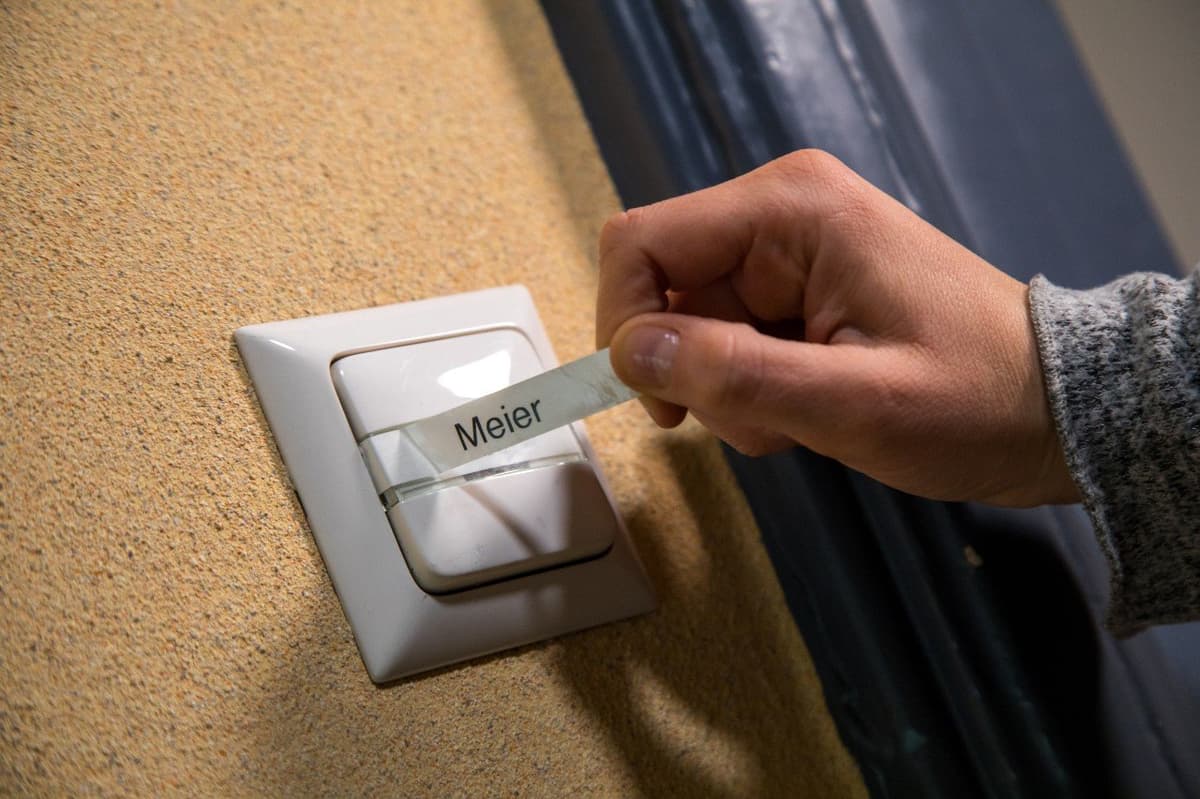What can get you evicted as a tenant in Germany?

Germany is known for its strong tenants' rights, helping protect renters from rip-off rents and unfair evictions. But what are the reasons tenants can legally be evicted from their homes?
Looking to move? Find your next rental apartment here.
As a nation of renters, many Germans are well clued-up on their rights. Traditionally, families can stay in the same rental property for many years and in some cases even pass old tenancies onto the next generation, enjoying a secure living situation without the huge expense of buying.
But for foreigners in the country, things aren't always so easy. Faced with a long rental contract in German language and riddled with bureaucratic terms, you may not entirely understand what you're signing up for.
To make matters worse, if you don't know your rights, you may not know if your landlord is acting in accordance with the law.
Recently, there have been a spate of reports on social media of people being harassed by their landlords to leave their properties.
In one case, a member of a Facebook group for foreigners in Berlin reported that they had been told to move out so their landlord could charge more rent for a new tenant, and was threatening legal action.
Unfortunately, situations like this appear to be all too common in Germany - especially in big cities with tense, competitive housing markets.
READ ALSO: Is renting a flat 'without Anmeldung' illegal in Germany?
The good news for tenants is that it can be difficult for a landlord to evict renters from a property. Legally, they can only do so under very specific circumstances.
When can my landlord evict me from the property?
Generally speaking, evictions can happen under four specific circumstances in Germany: breach of the contract, end of the tenancy, for business reasons or due to the landlord's need to use the property themselves.
It's worth remembering that these aren't black and white, and the landlord still faces a high burden of proof when trying to evict the tenant.
End of tenancy
If your tenancy agreement stipulates a start an end date - if it's a fixed-term contract - you are legally required to move out by the stated end date.
However, this isn't always clear cut, and some legal experts say that if you continue to live in the property and pay rent after the end date, a new term of tenancy may be implied. This certainly isn't something to count on, though, and if you're unsure you should seek legal advice.
Breaching the tenancy agreement
The main legal mechanism landlords have for trying to evict their tenants is a breach of the tenancy agreement, which can be anything from refusing to pay rent to subletting without the owner's consent.
Your obligations as a tenant - for example, the amount of rent, treatment of the property and respect for your neighbours - will all be set out in the tenancy agreement. This should be the first document you consult if you want to avoid any disagreements with the letting agent or landlord.
READ ALSO: How to sublet your apartment in Germany
In most cases, though, the most common breaches of tenancy rules are as follows:
- Late or missed rent payments
- Unauthorised sublets
- Carrying out renovations without permission
- Living with a pet without permission
- Over-occupation of the flat
- Repeated breaches of house rules (i.e. quiet periods)
In each of the above cases, the landlord has to inform the tenant of the issue within a matter of weeks if they want to take action. Writing to the tenant with an eviction notice due to a party they had six months ago would not be admissible under German law.
In the case of missed rent payments, tenancies can be terminated without notice after two consecutive months of unpaid rent.

A new tenant signs a rental contract in Germany. Photo: picture alliance/dpa/dpa-tmn | Christin Klose
Economic considerations
While a landlord simply saying, "I want to hike the rent" wouldn't usually be enough to evict a tenant, there are some situations in which economic considerations play a role.
Specifically, the law states that if the landlord is suffering "considerable disadvantages" from not being able to use the property in another way, this could be a legitimate ground for terminating a contract.
Landlords' personal use
If the landlord needs to use the property for themselves or one of their close relatives, such as a partner, siblings, children or parents, they can apply for what's known as an Eigensbedarfkündigung: a termination due to personal use.
It's important to note here that there are quite strict rules around this concerning the definition of close relatives, the reasons for needing the property and the type of intended use.
For example, a landlord wouldn't be able to stay that they need the property for storage purposes: they should intend to live in the property themselves, or have a member of their close family live in it, for the termination to be valid.
The reason for the sudden change of use should also be a compelling one, and not simply, "Because I want to."
Some examples include:
- To significantly improve their living standards
- Starting or extending the family, i.e. by moving in with a partner
- Moving much closer to work
- Improving accessibility in the case of illness
- Using the flat as a retirement home
Once again, the burden of proof is on the landlord here, and every situation in unique.
How much notice does my landlord have to give?
This is a complicated question to answer as there are several different factors that all play a role.
One factor is the amount of time a tenant has spent in the property, particularly if the landlord needs the property for their own use. In most cases, three months will be an ordinary termination period, but this has to be extended to six months if the tenant has lived in a property for 5-8 years, and up to nine months if they've been there for longer.

A tenant paints a rental property in Germany. Photo: picture alliance/dpa/dpa-tmn | Markus Scholz
As a general rule of thumb, three months is a minimum requirement, though some landlords set out shorter notice periods in the rental contract.
If you're subject to what's known as a fristlose Kündigung - or termination without notice - your landlord has to stipulate the length of time you have to leave the property in the letter of termination. In these urgent cases, two weeks tends to be the bare minimum.
READ ALSO: Six confusing things about renting a flat in Germany
What should I do if I'm being threatened with eviction?
Though suddenly receiving a notice of eviction in your letterbox is about as scary as it gets, it's important to stay calm and consider your options.
Firstly, you may want to consider if the landlord has a valid reason for trying to evict you. Even if something seems legitimate, legal experts and advisors at your local tenants' association will be able to check more thoroughly.
If you're aware that you are in the wrong - for example due to damaging the flat or missing a rental payment - it may be worth getting in touch with your landlord and offering to rectify this as soon as possible. Proving yourself to be a responsible tenant may encourage them to think again about tossing you out onto the streets.
In any case, the important thing is to act quickly to try and resolve the issue to avoid any further escalations.
That said, it's important to know that the landlord has no automatic right to force an eviction, and would need to obtain a court order before doing so.
READ ALSO: Your best hacks for finding a rental home in Germany
Comments (1)
See Also
As a nation of renters, many Germans are well clued-up on their rights. Traditionally, families can stay in the same rental property for many years and in some cases even pass old tenancies onto the next generation, enjoying a secure living situation without the huge expense of buying.
But for foreigners in the country, things aren't always so easy. Faced with a long rental contract in German language and riddled with bureaucratic terms, you may not entirely understand what you're signing up for.
To make matters worse, if you don't know your rights, you may not know if your landlord is acting in accordance with the law.
Recently, there have been a spate of reports on social media of people being harassed by their landlords to leave their properties.
In one case, a member of a Facebook group for foreigners in Berlin reported that they had been told to move out so their landlord could charge more rent for a new tenant, and was threatening legal action.
Unfortunately, situations like this appear to be all too common in Germany - especially in big cities with tense, competitive housing markets.
READ ALSO: Is renting a flat 'without Anmeldung' illegal in Germany?
The good news for tenants is that it can be difficult for a landlord to evict renters from a property. Legally, they can only do so under very specific circumstances.
When can my landlord evict me from the property?
Generally speaking, evictions can happen under four specific circumstances in Germany: breach of the contract, end of the tenancy, for business reasons or due to the landlord's need to use the property themselves.
It's worth remembering that these aren't black and white, and the landlord still faces a high burden of proof when trying to evict the tenant.
End of tenancy
If your tenancy agreement stipulates a start an end date - if it's a fixed-term contract - you are legally required to move out by the stated end date.
However, this isn't always clear cut, and some legal experts say that if you continue to live in the property and pay rent after the end date, a new term of tenancy may be implied. This certainly isn't something to count on, though, and if you're unsure you should seek legal advice.
Breaching the tenancy agreement
The main legal mechanism landlords have for trying to evict their tenants is a breach of the tenancy agreement, which can be anything from refusing to pay rent to subletting without the owner's consent.
Your obligations as a tenant - for example, the amount of rent, treatment of the property and respect for your neighbours - will all be set out in the tenancy agreement. This should be the first document you consult if you want to avoid any disagreements with the letting agent or landlord.
READ ALSO: How to sublet your apartment in Germany
In most cases, though, the most common breaches of tenancy rules are as follows:
- Late or missed rent payments
- Unauthorised sublets
- Carrying out renovations without permission
- Living with a pet without permission
- Over-occupation of the flat
- Repeated breaches of house rules (i.e. quiet periods)
In each of the above cases, the landlord has to inform the tenant of the issue within a matter of weeks if they want to take action. Writing to the tenant with an eviction notice due to a party they had six months ago would not be admissible under German law.
In the case of missed rent payments, tenancies can be terminated without notice after two consecutive months of unpaid rent.

Economic considerations
While a landlord simply saying, "I want to hike the rent" wouldn't usually be enough to evict a tenant, there are some situations in which economic considerations play a role.
Specifically, the law states that if the landlord is suffering "considerable disadvantages" from not being able to use the property in another way, this could be a legitimate ground for terminating a contract.
Landlords' personal use
If the landlord needs to use the property for themselves or one of their close relatives, such as a partner, siblings, children or parents, they can apply for what's known as an Eigensbedarfkündigung: a termination due to personal use.
It's important to note here that there are quite strict rules around this concerning the definition of close relatives, the reasons for needing the property and the type of intended use.
For example, a landlord wouldn't be able to stay that they need the property for storage purposes: they should intend to live in the property themselves, or have a member of their close family live in it, for the termination to be valid.
The reason for the sudden change of use should also be a compelling one, and not simply, "Because I want to."
Some examples include:
- To significantly improve their living standards
- Starting or extending the family, i.e. by moving in with a partner
- Moving much closer to work
- Improving accessibility in the case of illness
- Using the flat as a retirement home
Once again, the burden of proof is on the landlord here, and every situation in unique.
How much notice does my landlord have to give?
This is a complicated question to answer as there are several different factors that all play a role.
One factor is the amount of time a tenant has spent in the property, particularly if the landlord needs the property for their own use. In most cases, three months will be an ordinary termination period, but this has to be extended to six months if the tenant has lived in a property for 5-8 years, and up to nine months if they've been there for longer.

As a general rule of thumb, three months is a minimum requirement, though some landlords set out shorter notice periods in the rental contract.
If you're subject to what's known as a fristlose Kündigung - or termination without notice - your landlord has to stipulate the length of time you have to leave the property in the letter of termination. In these urgent cases, two weeks tends to be the bare minimum.
READ ALSO: Six confusing things about renting a flat in Germany
What should I do if I'm being threatened with eviction?
Though suddenly receiving a notice of eviction in your letterbox is about as scary as it gets, it's important to stay calm and consider your options.
Firstly, you may want to consider if the landlord has a valid reason for trying to evict you. Even if something seems legitimate, legal experts and advisors at your local tenants' association will be able to check more thoroughly.
If you're aware that you are in the wrong - for example due to damaging the flat or missing a rental payment - it may be worth getting in touch with your landlord and offering to rectify this as soon as possible. Proving yourself to be a responsible tenant may encourage them to think again about tossing you out onto the streets.
In any case, the important thing is to act quickly to try and resolve the issue to avoid any further escalations.
That said, it's important to know that the landlord has no automatic right to force an eviction, and would need to obtain a court order before doing so.
READ ALSO: Your best hacks for finding a rental home in Germany
Join the conversation in our comments section below. Share your own views and experience and if you have a question or suggestion for our journalists then email us at [email protected].
Please keep comments civil, constructive and on topic – and make sure to read our terms of use before getting involved.
Please log in here to leave a comment.